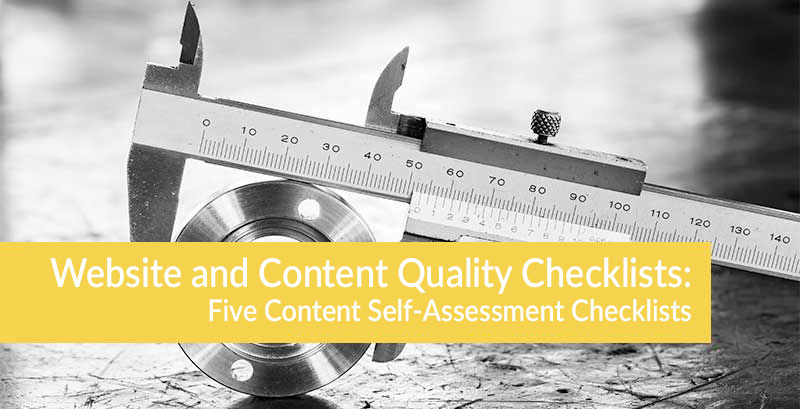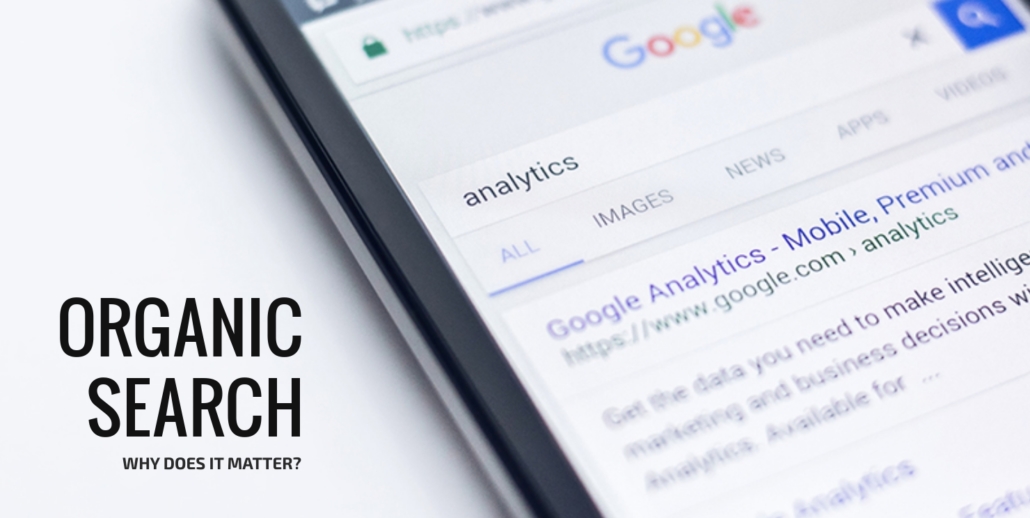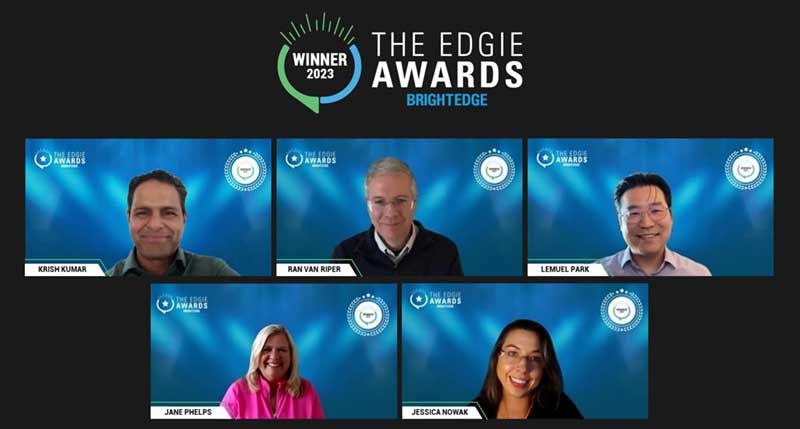The key to creating a useful and well-ranking website is the content. Your content needs to be helpful, people-first, trustworthy, informative, and add value.
In fact Google cares so much about your content that it released the Helpful Content System update in mid-September. This update is having significant search result impacts.
It’s imperative you understand what Google expects from your content and how to deliver this content to your readers.
Use this blog as your helpful content, E-E-A-T, and content checklist resource:
- Learn what helpful content really means
- Refresh your E-E-A-T knowledge
- Use my checklists to assess content quality
What is the Google Helpful Content System Update?
The Google Helpful Content System update aims to better reward content where visitors feel they’ve had a satisfying experience, while content that doesn’t meet a visitor’s expectations won’t perform as well.
People-first content creators focus on creating satisfying content, while also utilizing SEO best practices to bring searchers additional value.
Your content needs to be about people – not search engines. Yes, use keywords, but prioritize search intent and doing your best to give people content that helps.
Think about what you want from search results: a link that takes you to a page that answers your original search query and gives additional supportive information to help you thoroughly understand the topic.
Be thorough. Know what questions people have. Give people useful and helpful information that makes a difference.
An E-E-A-T Refresher
E-E-A-T stands for:
- Experience: does the author have life or first-hand experience with the topic?
- Expertise: does the author have relevant skills, knowledge, and expertise with the topic?
- Authoritativeness: is the website or author a recognized expert or source for the topic?
- Trust: how safe, honest, accurate, and reliable is the website?
E-E-A-T applies to every page on your website – not just blogs. Make sure your home and about us pages clearly prove E-E-A-T.
Tell people why they can trust you, talk about your experience, and why you have the products and services that you do. Make sure every blog has a detailed author bio that demonstrates experience, expertise, and authority.
Content Quality, E-E-A-T, and Helpfulness Checklists
Google has some excellent questions to help you assess your content quality. We have tweaked Google’s list of questions, adding more context so you can easily assess your content.
Use these checklists to self-assess your website and to start a conversation with your colleagues about your content quality and strategy.
If you can answer Yes to each of these questions, this is a strong indicator that your website and content provide high-quality, people-first, helpful, thorough, and relevant content.
Content and Quality Checklist:
- Does my website deliver original information, reporting, research, or analysis? Read your content – is it saying anything new or different from your competitors. Ideally your content communicates your point of view, delivers thought leadership and analysis, or provides something unique to your niche and industry.
- Does our content provide a comprehensive, thorough, detailed, complete, or substantial description of the topic? The best content is content that answers questions and gives readers the extra information they need to have a balanced and well-rounded understanding of the topic. This type of content both helps and informs.
- Does our content go beyond stating the obvious and provide insightful analysis or interesting information? This is all about content value – what value is your content providing? A simple rehash of facts from another website is not enough. Think of what you want from the content you read and give this to your readers.
- When using content from other sources, is the content updated to provide substantial additional value and originality? There is nothing wrong with using online sources, but to be of value to your readers and search engines, your content needs to be different from the source material.
- Are you using headlines and page titles that communicate value and do not use shocking language? You do need to catch the reader’s attention but the best way to do this is with headlines and page titles that communicate the value of the page and tell the reader what they will learn from your content.
- Would you recommend this page to a friend or refer to it frequently yourself? If yes, then this is a strong indicator that the page is of high quality. If not – it’s time to update this page with content that you feel proud to share with others.
- Is this content the type and quality that could be referenced in a book, printed magazine/newspaper, or encyclopedia? This speaks to the quality and expertise of the content and underscores how important it is to always provide high-value, informative content that others find useful and helpful.
Expertise Checklist:
- Does your content clearly communicate that your website is a trusted resource? The best way to do this is with clear and obvious sourcing of reference documents, author biographies that highlight expertise and background, an informative About page, and easy to find contact information.
- If you were using your website to learn about your subject area, would it give you the information you need to trust it as an expert and authority? To understand this, take a look at a page and ask how this page proves expertise and authority in your subject area.
- Are experts writing your content? The hallmark of high-quality expert content is content written by a subject matter expert or committed enthusiast who clearly knows the topic. This should be obvious from reading the Author bio on your blogs/articles and from reading the About page.
- Is your content free of easily verified factual errors? No one wants to read content with factual errors. Always double-check your facts, update content with the latest stats and industry research, and provide links to those sources. Expert, authoritative, and trusted content must be error-free.
- When making decisions about your money or your life, would you trust this content? Your Money, Your Life (YMYL) pages contain information that has an impact on your money or your life. If you are providing content about health, money, wellness, education, and other YMYL topics, it’s vital that your website and content are recognized by Google and other search engines as an expert, authoritative, and trusted voice in your field.
Presentation and Layout Checklist:
- Is your content free of spelling and grammatical errors? Always spell-check your content and use a writing tool that provides grammar checks.
- Is the page layout and design easy-to-read and navigate? It must be easy for people to find the information they want with a clean design and accessible menus. It should be clear that thought and attention-to-detail were used in the layout, design, and publishing process.
- Does your content communicate a consistent tone and use the same design/layout across all pages? Quality websites use the same tone of voice, style, language, and design across all pages. Every page needs the same level of care and if you are using multiple writers, it should not be obvious who has written what. Make sure you’re using a consistent layout, colors, menu, and design across all pages.
- Is your website free of ads that make it difficult for readers to access the content they’re looking for? Make sure any pop-ups or interstitials are easy to close, small, and do not take over the entire page. Google has said that pop-ups or interstitials that block the entire page or are hard to close, negatively impact page ranking in search engine results.
- Does your website display well on mobile devices? Are the menus easy to access? Do the buttons work? Is it easy to find the contact information? Can your readers easily navigate your website on a mobile device? Do not assume the answer is yes, test your website on multiple mobile devices.
Comparative Checklist:
- Does your content deliver substantial value when it is compared to other pages in the search results? This underscores the importance of providing original and authoritative information that communicates a point-of-view, thought leadership, or research/analysis.
- Does your content meet the search intent of your readers? Your readers want answers to their questions and queries. Do you know what your readers are searching for and the questions they have? Every piece of content should be written around search intent – this is how you give people what they want and need. You cannot guess at search intent.
People-First Purposeful Content Checklist:
- Who is this content for? Does this content help your readers and target audience? Make sure every piece of content on your website is relevant to your readers and target audience. Don’t be tempted to publish content on trending topics or to use high-volume keywords that aren’t relevant to your area of expertise.
- Is first-hand or life experience obvious to readers? Is the content showing a level of experience that comes from real-life? Does the content go deeper than a fact check page? The nature of the internet means anyone can write about anything, so you need to make your experience and expertise with the subject matter blatantly clear. Focus on creating original content based on your unique knowledge and experience with the topic.
- Is this content a thorough source of information on the subject? Are you writing with search intent in mind? Does this content have a primary focus? Always ask yourself why you’re writing the content. If you can’t answer this easily, then it’s time to start over. Do not write and publish content just for the sake of doing so. Every page on your site needs to be backed by intent and purpose.
- Are you saying anything new or contributing a unique perspective? Avoid writing content just because the keywords or topic is trending. Think about how you can add value to your readers and focus on delivering this.
- Is this content for real people? Above all else, do not create content for search engines. Google wants to highlight content that helps people answer questions and solve challenges. If you’re struggling with finding content ideas, look at the People Also Ask questions and Google’s auto-complete function – these are great ways to understand what people are searching for in your niche.
10 Step Helpful Content Auditing Checklist
You don’t always have time to do a deep audit of your content. Use this 10-step checklist when you’re working on content strategy or planning, writing, and editing content.
- Why is the content on your website? What questions is it answering? What added value does it provide?
Remember: people won’t spend time trying to understand your company and brand. Make sure every word on your site is there for a reason – skip the fluff, cut back on adjectives, and use short, simple sentences. - Does your home page clearly explain what your company sells or provides? Are you using plain, jargon-free language to explain how your products/services solve problems for people?
Remember: search intent matters, particularly on your home page. Make it clear how you solve problems for people. Do this with clear language that is not bogged down with marketing-ese. - Who is writing your content? Do you have an author name, photo, and bio for every single blog? Is it obvious that the author is a subject matter expert on the content?
Remember: Google wants to know your content is based on experience, expertise, authority, and trust (E-E-A-T). People are wary of online information, so you need to be very clear about your knowledge and why people can trust you. - How is your content created? Are you relying on generative AI tools such as ChatGPT to write your website content, blogs, and social media posts? If so, you need to be transparent with your readers, disclosing that the content was not written by humans.
Remember: Google can detect AI-generated content, so do not attach an author byline and bio to AI-generated content. - What is the intent behind the content? Are you using titles, headlines, and language to shock or tease readers? Are the headings descriptive, providing people with a clear understanding of the page content?
Remember: the best way to capture reader trust is by using headlines and page titles that communicate the value of the page and tell readers what they will learn from you. If you struggle with this, remind yourself of the search intent and content purpose. - What new information, insights, thought leadership, reporting, or analysis does the content provide? This primarily applies to blogs, whitepapers, and social media content.
Remember: content scraping and repeating information found on other websites is not considered high-value, helpful content. Always look for a new angle or perspective on the content you’re providing. - Why should Google and your readers trust your content? For YMYL websites, it’s important to include references, links, and endnotes to credible scientific research and authoritative websites. And remember to adhere to the FDA’s guidelines on health claims and statements.
Remember: building trust with Google is essential to ranking in the search engine results. Do not make unsubstantiated claims about products or ingredients. - How easy is it for people to find the information they want on your website? Are your menus clear and obvious? Does your footer include links to your customer service team and a contact us email or form? How many clicks does it take to learn who your company is and what you do? Are there multiple interstitials (pop-up ads) that are hard to close?
Remember: Google’s core ranking system rewards content that delivers a good page experience. The best content cannot overcome poor page experience. - Who is your website content for? If you wrote the content for search engines, you need to start over. Every single page on your website needs to be created for real people. Ask yourself how the content helps, supports, or informs a real human.
Remember: write content that you want to read and that you find value in. Think about the questions people have about the topic and give them all the information they need to feel confident and knowledgeable. - How are you using keywords? If you cannot fit your keyword phrase into your content naturally, you need to start over. SEO and keywords matter, but the priority needs to be on people-first and experience-driven content that answers questions and solves problems.
Remember: when you focus on search intent, you can more easily incorporate your keywords. Do not write content just to rank. Google is too smart for this (and so are your readers).
Google wants you to succeed. Pay attention to the information Google gives you about what they want to highlight in the search engine results.
When in doubt about your content, remember this:
- Be thorough
- Know what questions people have
- Give people useful and helpful information that makes a difference
Contact us for an honest analysis and assessment of your website and content. Trust us to give you an unbiased review of your digital presence.



